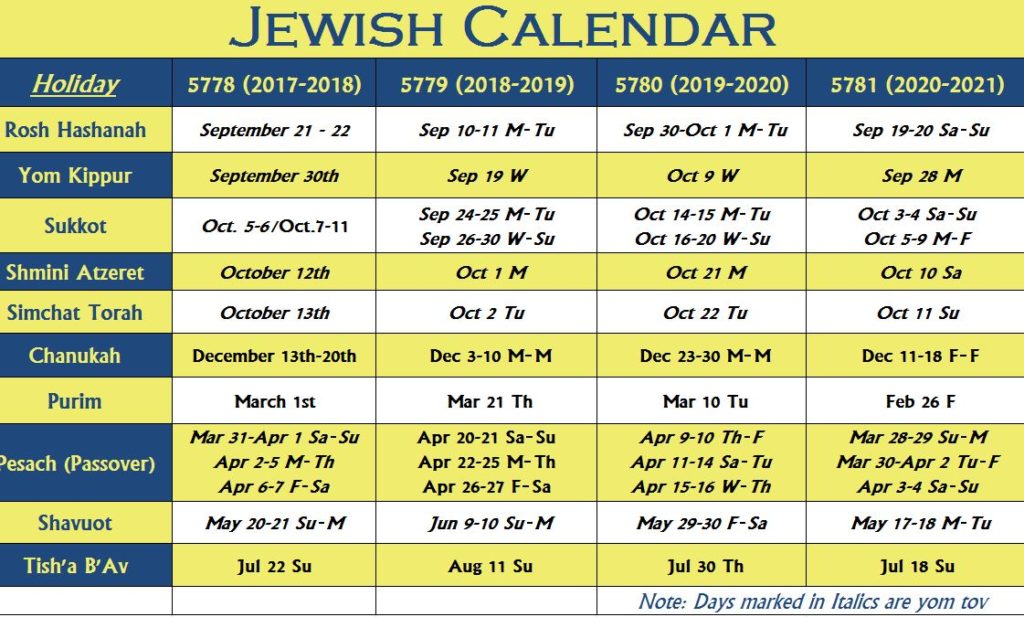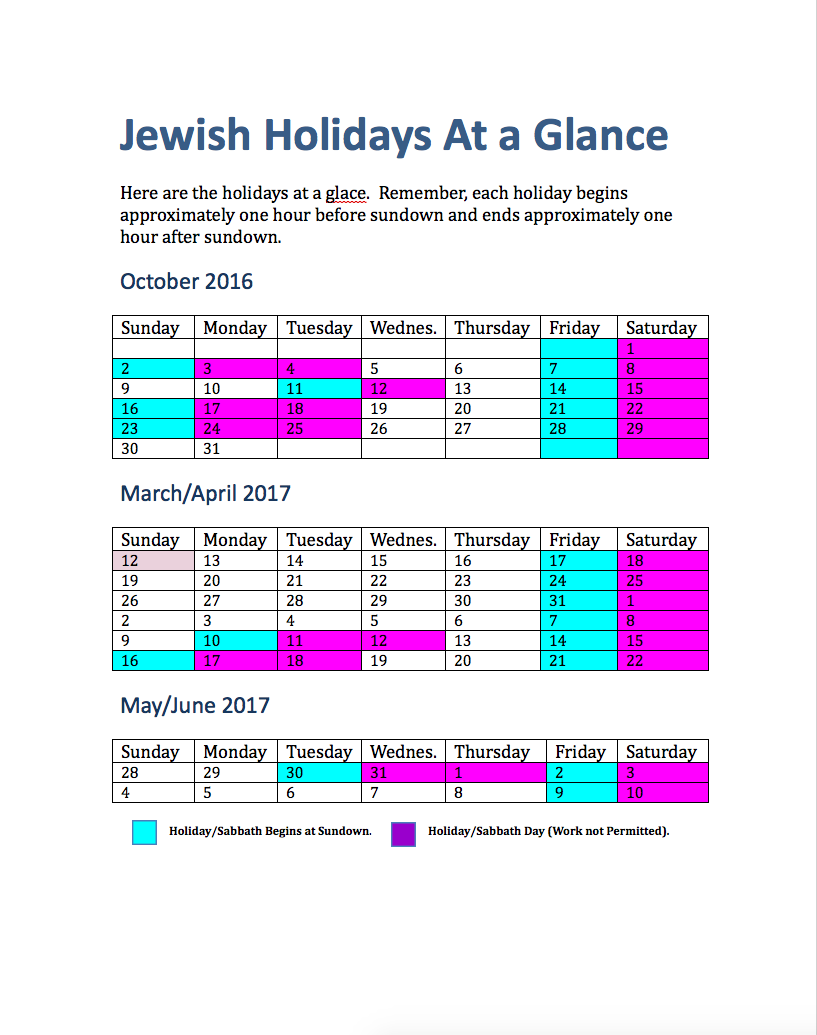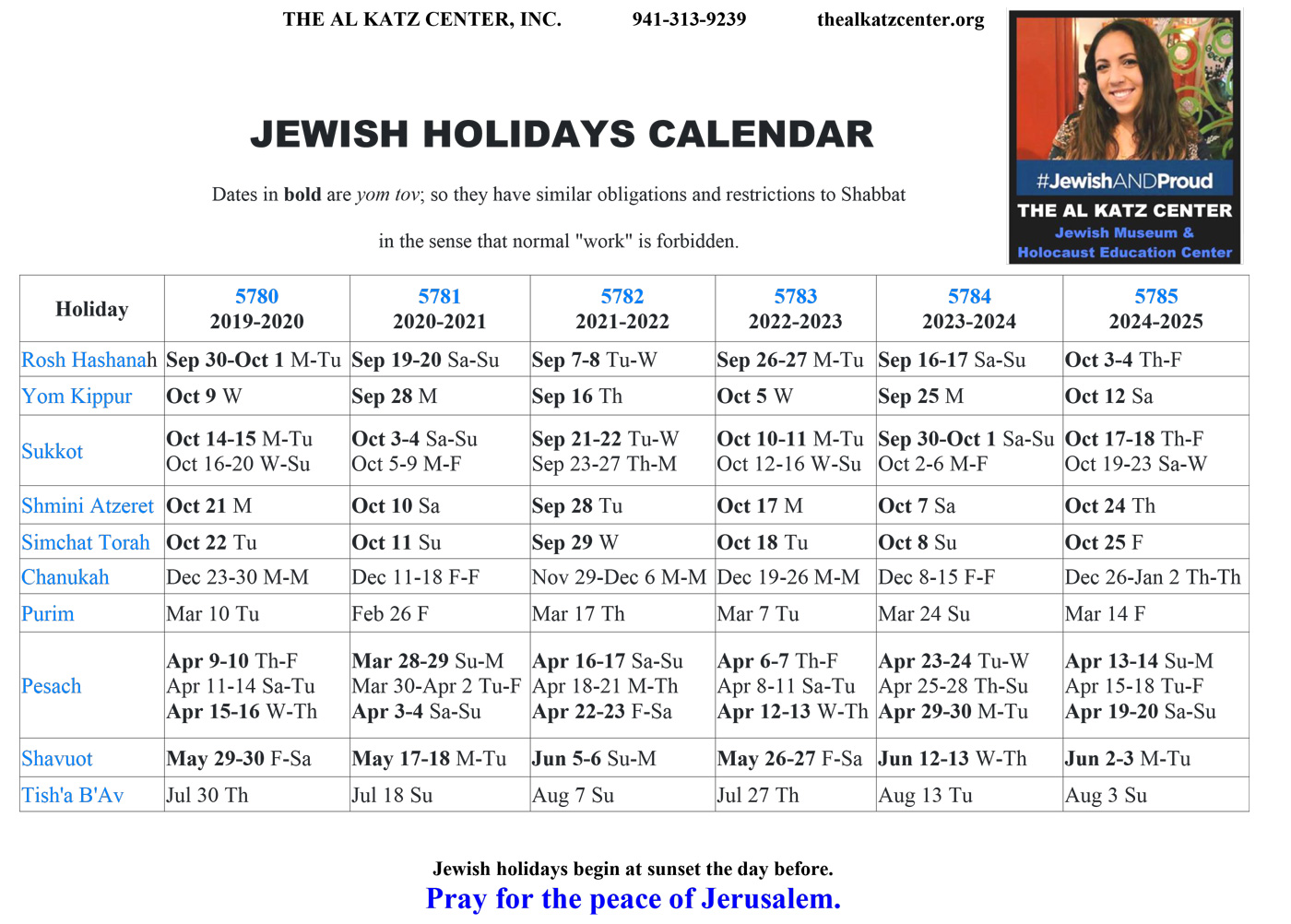Jewish Holidays Calendar 2025: A Comprehensive Guide
Related Articles: Jewish Holidays Calendar 2025: A Comprehensive Guide
- Julian Date Calendar For The Year 2025
- Free Year Calendar 2025 Printable One Page: Stay Organized And Plan Ahead
- Calendario 2025 Mes De Julio
- 2025 Indian Holiday Calendar: A Comprehensive Guide To National And Regional Observances
- December 2025 UK Calendar
Introduction
With great pleasure, we will explore the intriguing topic related to Jewish Holidays Calendar 2025: A Comprehensive Guide. Let’s weave interesting information and offer fresh perspectives to the readers.
Table of Content
Video about Jewish Holidays Calendar 2025: A Comprehensive Guide
Jewish Holidays Calendar 2025: A Comprehensive Guide

Introduction
The Jewish calendar is a lunisolar calendar, meaning that it is based on both the cycles of the moon and the sun. This results in a calendar that is slightly longer than the Gregorian calendar, which is the calendar most commonly used in the world today. The Jewish calendar is used to determine the dates of Jewish holidays and festivals, as well as the beginning and end of the Jewish year.
The Jewish year 5786 begins on the evening of September 25, 2025, and ends on the evening of September 14, 2026. The following is a list of the major Jewish holidays that will be observed in 2025, along with their dates on the Gregorian calendar:
High Holy Days
- Rosh Hashanah: September 25-26, 2025
- Yom Kippur: October 5, 2025
Sukkot
- Sukkot: October 11-18, 2025
- Shemini Atzeret: October 18-19, 2025
- Simchat Torah: October 19, 2025
Other Major Holidays
- Hanukkah: December 10-18, 2025
- Purim: March 7, 2025
- Passover: April 5-13, 2025
- Shavuot: May 24-25, 2025
Minor Holidays
- Tu B’Shvat: January 18, 2025
- Purim Katan: March 9, 2025
- Lag B’Omer: May 10, 2025
- Tisha B’Av: July 21, 2025
Observances
- Yom HaShoah: April 23, 2025
- Yom HaZikaron: April 28, 2025
- Yom HaAtzmaut: April 29, 2025
Detailed Descriptions of Major Holidays
Rosh Hashanah
Rosh Hashanah, which means "head of the year," is the Jewish New Year. It is a two-day holiday that begins on the evening of the first day of the Hebrew month of Tishrei. Rosh Hashanah is a time for reflection and repentance, and it is customary to attend synagogue services and eat special foods, such as apples and honey.
Yom Kippur
Yom Kippur, which means "Day of Atonement," is the holiest day of the Jewish year. It is a day of fasting and prayer, and it is customary to spend the entire day in synagogue. Yom Kippur is a time to reflect on one’s sins and to seek forgiveness from God.
Sukkot
Sukkot, which means "booths," is a seven-day holiday that begins on the evening of the 15th day of the Hebrew month of Tishrei. Sukkot commemorates the Israelites’ 40 years of wandering in the desert after the Exodus from Egypt. It is customary to build a sukkah, or temporary booth, in which to eat and sleep during Sukkot.
Hanukkah
Hanukkah, which means "dedication," is an eight-day holiday that begins on the evening of the 25th day of the Hebrew month of Kislev. Hanukkah commemorates the victory of the Maccabees over the Seleucid Empire in the 2nd century BCE. It is customary to light a menorah, or candelabra, each night of Hanukkah.
Purim
Purim, which means "lots," is a two-day holiday that begins on the evening of the 14th day of the Hebrew month of Adar. Purim commemorates the deliverance of the Jewish people from the evil Haman in the 5th century BCE. It is customary to read the Megillah, or scroll of Esther, and to eat hamantaschen, or triangular pastries filled with poppy seeds or fruit.
Passover
Passover, which means "to pass over," is an eight-day holiday that begins on the evening of the 15th day of the Hebrew month of Nisan. Passover commemorates the Israelites’ Exodus from Egypt in the 13th century BCE. It is customary to eat matzah, or unleavened bread, and to hold a seder, or ritual meal, on the first and second nights of Passover.
Shavuot
Shavuot, which means "weeks," is a two-day holiday that begins on the evening of the 6th day of the Hebrew month of Sivan. Shavuot commemorates the giving of the Torah to the Israelites at Mount Sinai. It is customary to read the Torah and to eat dairy products on Shavuot.
Conclusion
The Jewish calendar is a rich and complex system that has been used for centuries to determine the dates of Jewish holidays and festivals. The holidays listed above are just a few of the many that are observed by Jews around the world. Each holiday has its own unique traditions and customs, and they all play an important role in Jewish life.








Closure
Thus, we hope this article has provided valuable insights into Jewish Holidays Calendar 2025: A Comprehensive Guide. We hope you find this article informative and beneficial. See you in our next article!